
2019.12.01 Let’s build an edible garden!
Text:Saeko Imai
This year June, Little Planet (this is what we call our garden) has drastically transformed itself; machineries entered, big clay pipe was set up, and soil was filled. Grass started to grow, bugs and frogs started to appear, which brought a drastic change in relationship between children and this corner of Yamanoko. At our ever-transforming Little Planet ,“PAMA-NOKO WORKSHOP – Let’s build an edible garden!” took place in September and November.
—–
One of our aspirations for Yamanoko is stated as ”raising sensibilities as an inhabitant of planet earth”. How does one achieve this? After looking for answers for a while, we found permaculture. Permaculture is about designing fulfilling ways to live while using nearby resources without putting on the burden on the environment. At Yamanoko, we strive to create a rich environment created with the principles of permaculture where children can learn through play. Our vision is to create a fun, delicious everyday life in a diverse environment, where we grow our own vegetables and fruits. This workshop was curated in order to create an outside play area that is very much like a “a little earth”.
(1)Workshop Part 1 (September 7th – 8th)
In the deadly heat of 38 celsius in the beginning of September, our first workshop was held. Our instructor was Phil Cashman, a permaculture practitioner. people have participated including Yamanoko parents, staff and general participants from Miyagi, Iwate, Tokyo etc.
People often ask us what permaculture is: it is a word that often gets talked about without much context. Phil mentions the following: “ I will try my best to describe permaculture without the word, permaculture”, that is when the workshop started. “Everything is connected”, he says followed by the statement below:
「When I was born, I weighed 3500 grams but now I weigh about 760000 grams. How did this happen? All I did was I was collecting materials called food that was grown out of soil. You can say that I am composed of soil. Everything regards themselves as “me” but “me” is made of many things composed. For example, the cucumber from the garden has now become the water in my brain (thus a part of “Phil”). When that gets flushed out of my body, “Phil” then goes to become the water of the river, then that of a fish, and another creature afterwords. It has been scientifically proven that if you were to put a GPS in a cell, you will see that within a week, it will circulate the earth once, and becomes a part of numerous creatures. We are already a part of ecosystem. It is our brain differentiating what we see as this is A and this is B, but physically there is no separation because it always continues to change. Where we draw the line, it is the matter of consciousness. There is a saying “Kankeinai” (In Japanese this means, “This is none of my business”, or “This is unrelated to another”), but in real life, there is nothing that is not related. Everything is related and connected. I want to design a lifestyle that you ca create abundant beauty from this possibility.」
We all need food in order to thrive on this planet. At Yamanoko, we wanted to create a real experience of food; growing, harvesting and cooking them. From this wish, we made raised beds at the workshop. We received thinned cedar wood from Yuza, skinned the skin, and cut them with chainsaw at the same length. After laying them on the ground, we fix them by putting curved iron clamps. Even in the deadly heat, both children and adults never ceased to be kind to each other. The end result was beautiful!! After the workshop, we laid down soil with the children, sowed seeds and beautiful daikon and radishes were created.
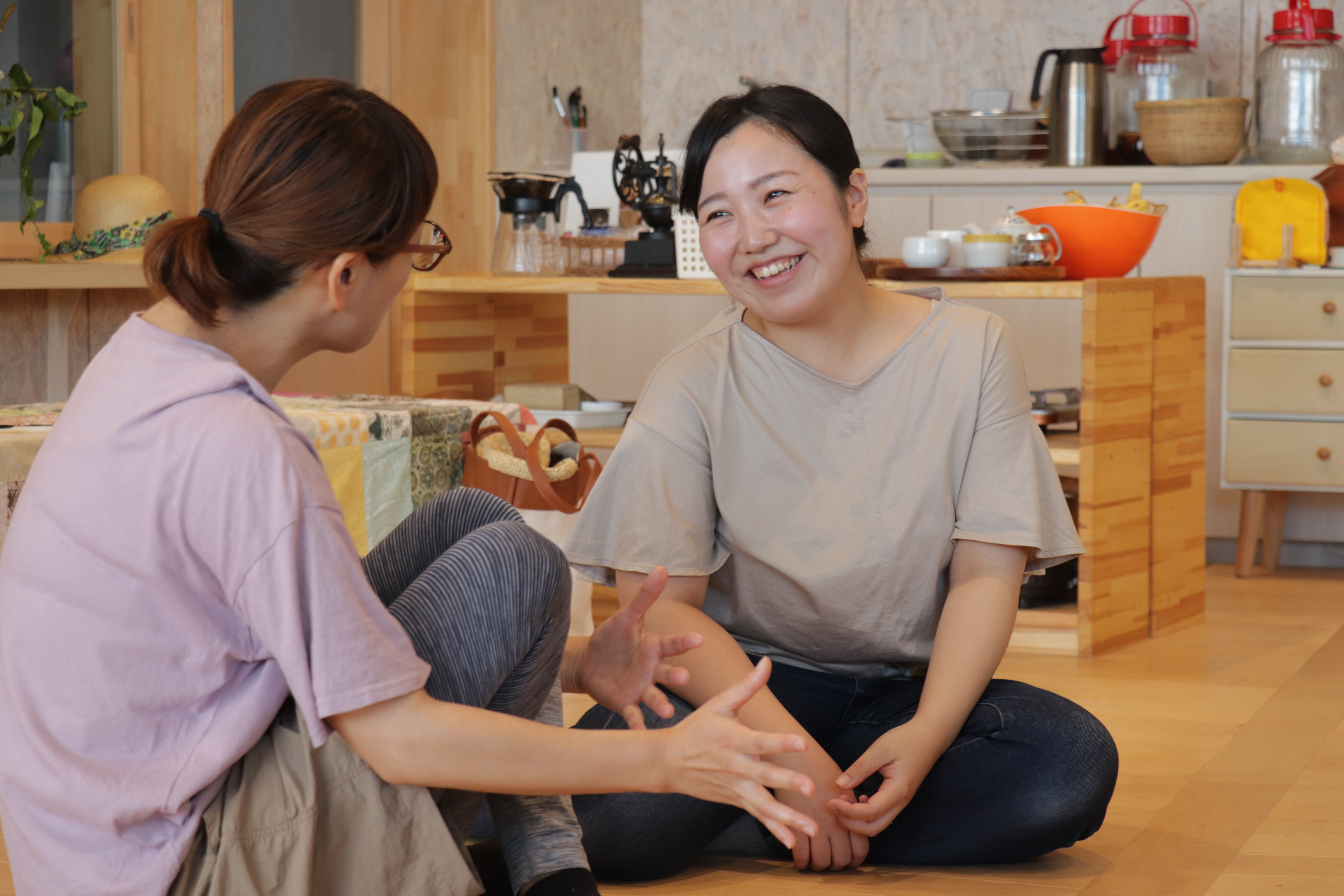
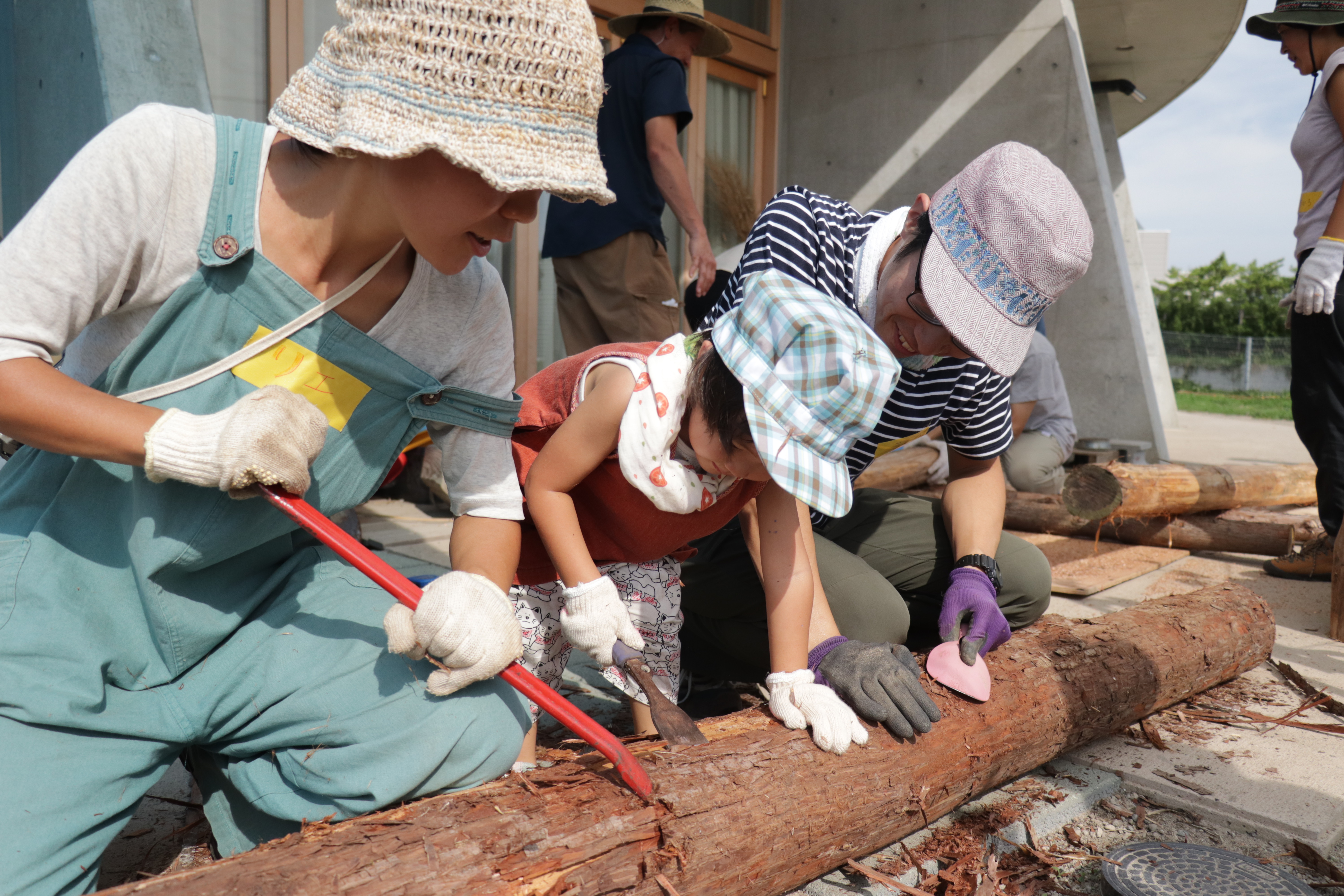

(2)Workshop Part 2 (November 9th – 10th)
Second part of workshop took place in November, and people participated. This time, the theme is “Soil and plants”. While referring to the environmental problems that we face, Phil talked about introducing the system where soil gets fertilized through composting.
「The agriculture system we face today, has been too focused on productivity and consequently has greatly impacted the air, the temperature and the decline of water transparency. Clearly, the world has become unbalanced. This has caused climate change, our biggest problem that humanity has faced. We have passed the point of necessity of sustainable agriculture, but now we face the necessity of regenerative agriculture. The key is how to incorporate nature into agriculture. I want this playground to become something that can regenerate the land. The first part is soil. We want to create a system where soil gets constantly fertilized. We want to incorporate a system where there’s an increase in eco-diversity, water transparency and moisture and air in the soil. I want Little Planet to mimic what forests do. What we don’t have to do, nature will do. It takes a complex function to incorporate a system to create a learning environment for children and a place where rich eco-diversity can grow at the same time.」
We wanted to create a system where the land regenerates through our food making. So we made big compost bins out of bamboos to make kitchen refuse into composts. Right now, the kitchen waste that we produce is now put into compost bins everyday!

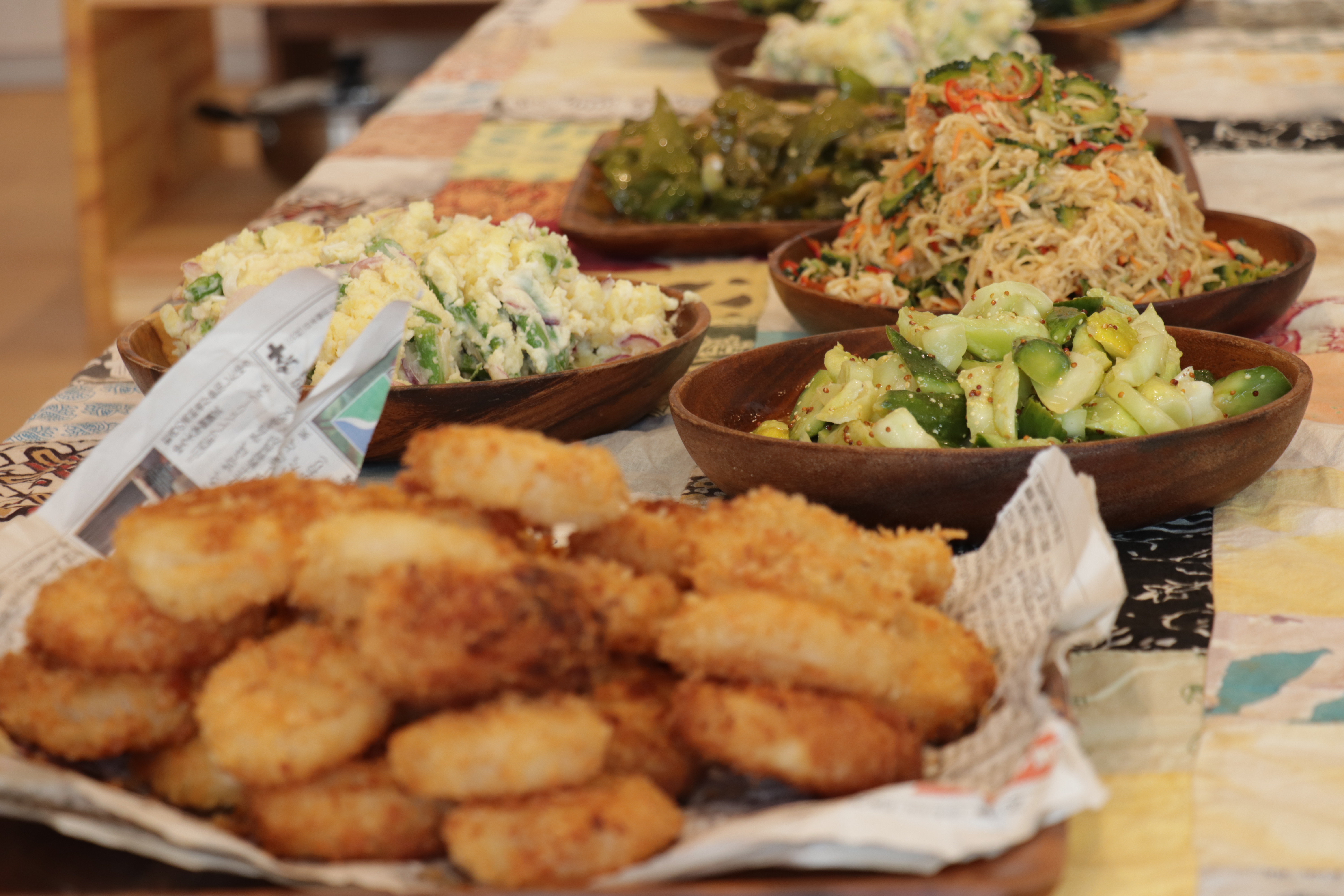
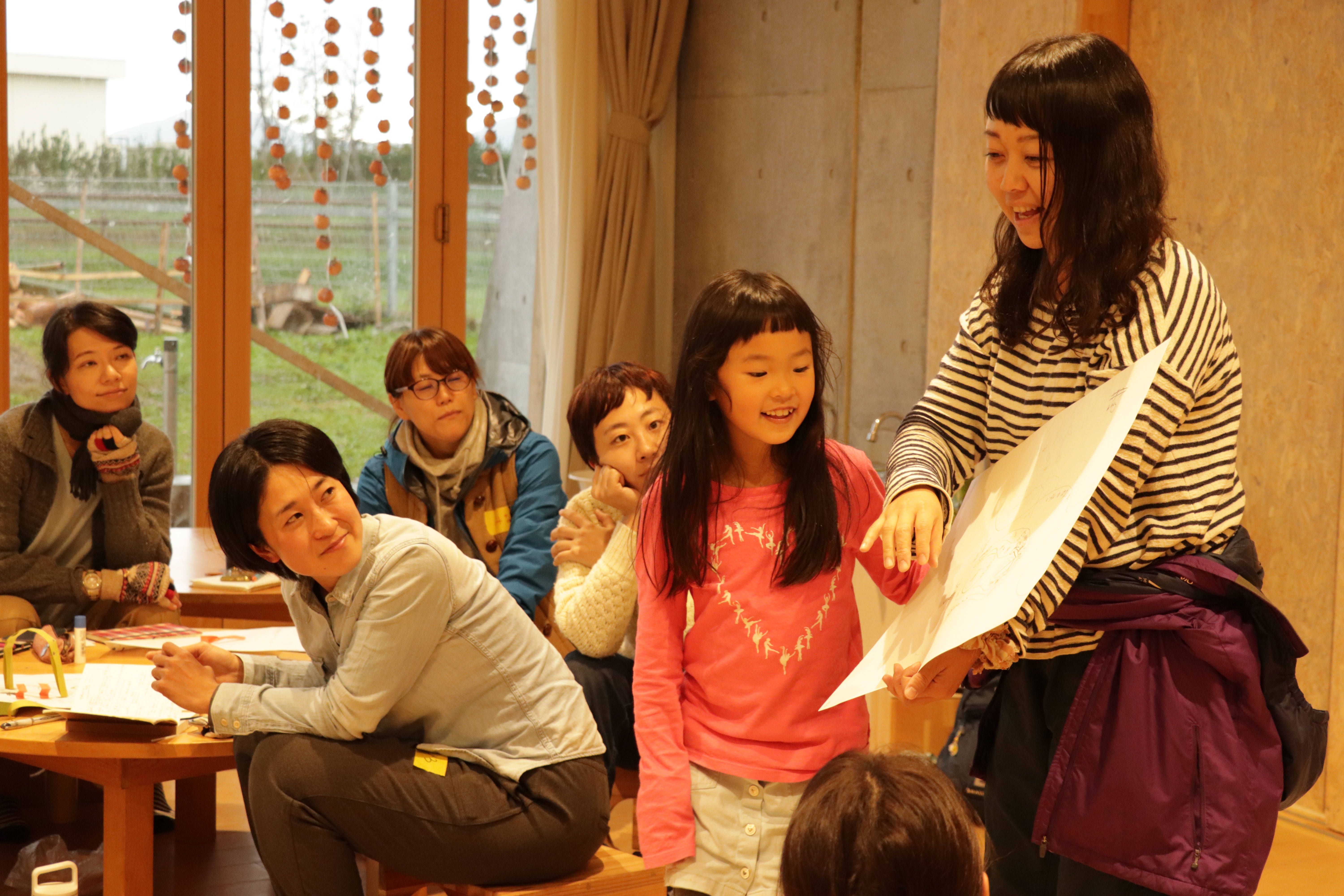
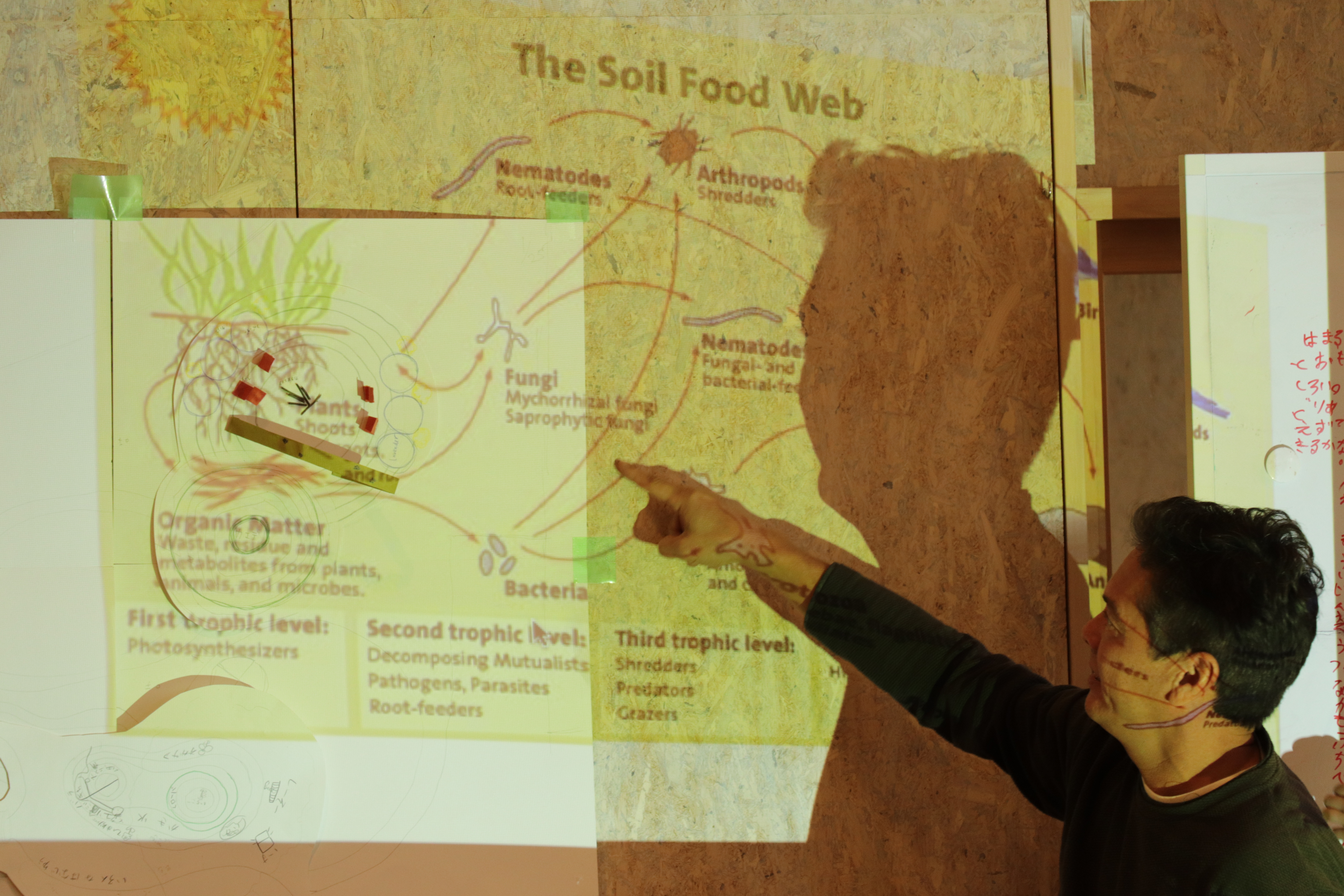
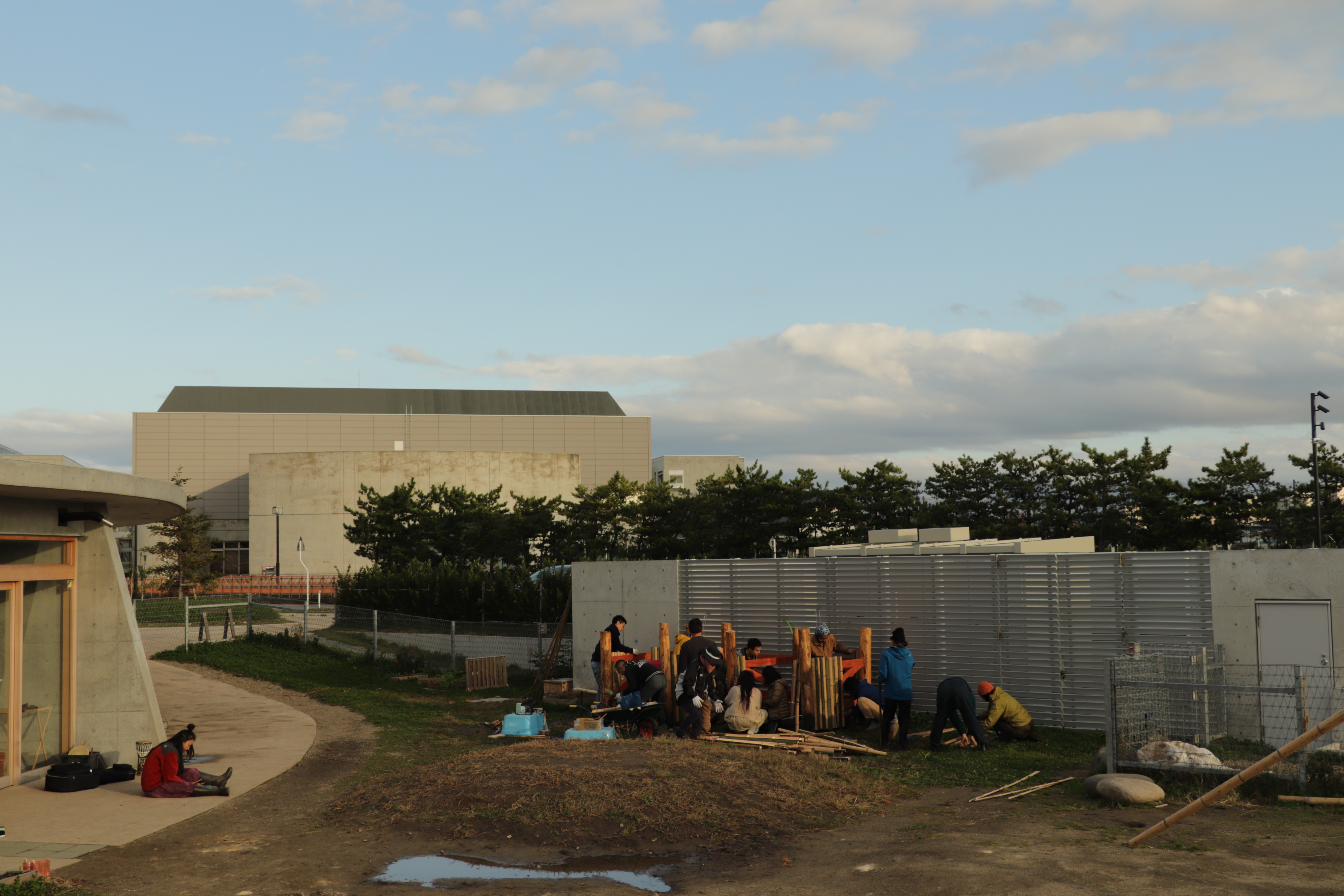
(3)In Conclusion
The workshops that we held in September and November were beautiful reminders of “connections” that are absolutely essential for people to live on this earth. Big thank you to our instructor Phil Cashman, Hiroshi Kokubo who came as a volunteer, our amazing food providers Emiko Umui, Day by Day, Shokudo Sasaki, Haruo Sanada and Daisuke Igarashi who provided us with materials and knowledge and everybody who participated.
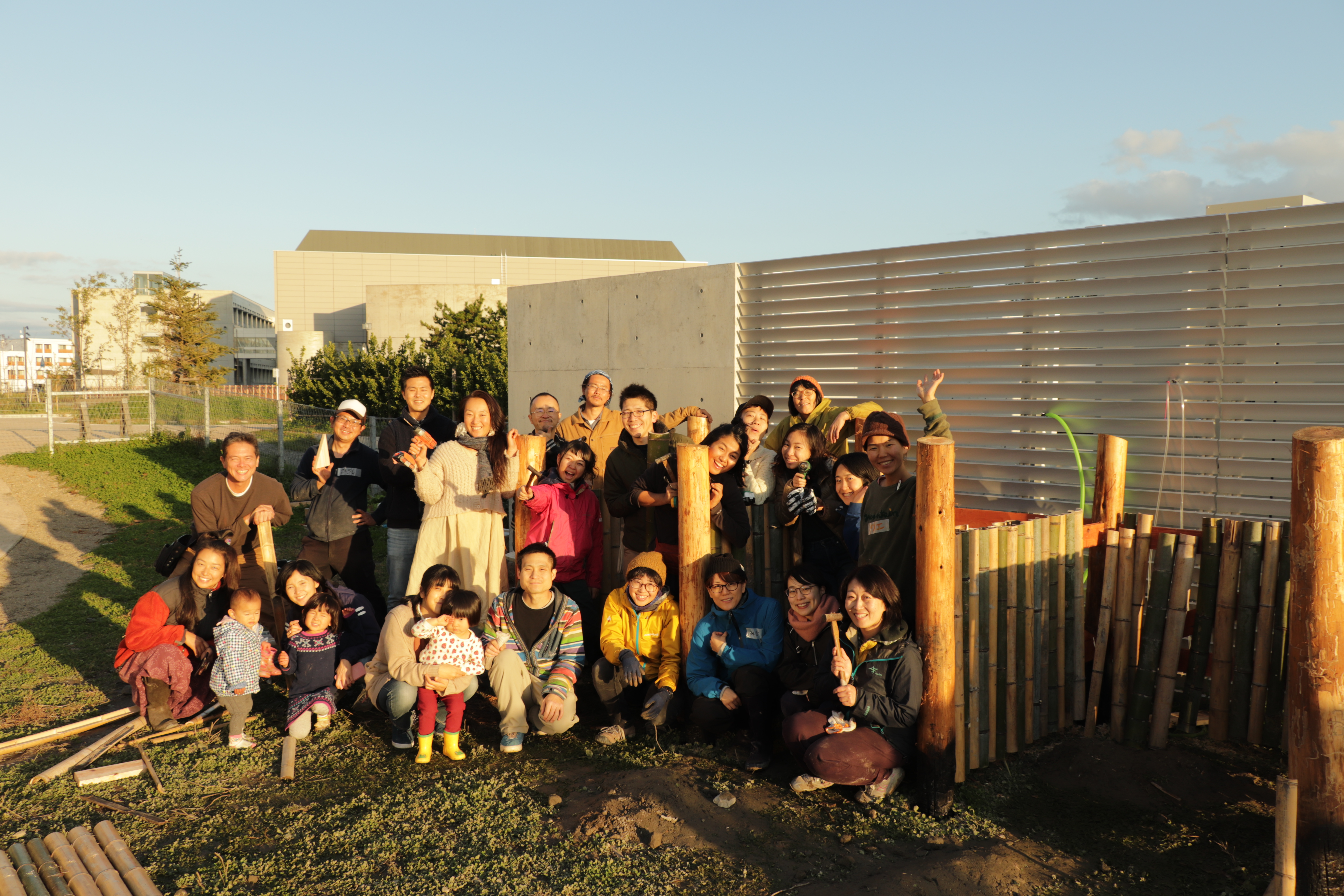













 PREV
PREV